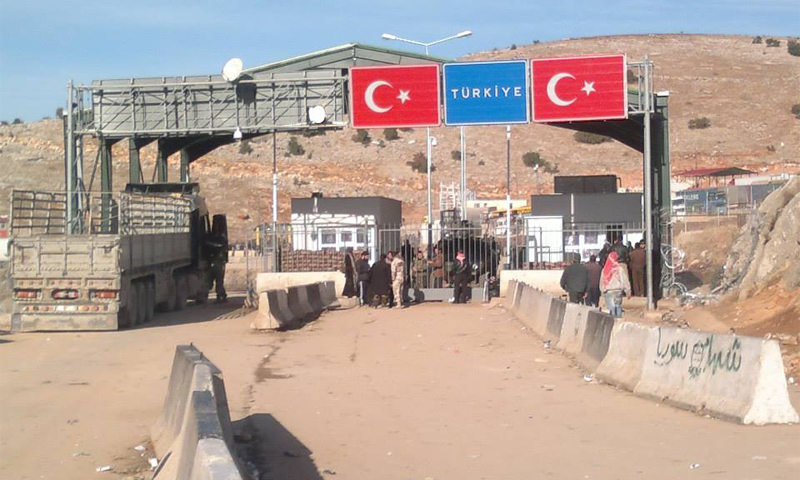Turkish authorities issued a sudden decision on March 4th, announcing the complete closure of the Bab Al-Hawa border crossing for travelers and businessmen until further notice, with the exception of humanitarian issues. This step coincides with tightened security on the border in Idlib and Latakia.
Arbitrary Decision
Syrian activists described the decision to close the Syrian border as arbitrary. It caught several workers in the commercial and transportation sectors in Turkey and Syria by surprise. This is in addition to the citizens that are waiting to enter Turkey to travel to other countries where they have residency.
This is the first step of its kind by the Turkish Government. Although they closed the border crossing for travelers just over a year ago, commercial traffic and relief material continued to enter Syria. This lent a relatively decent level of economic stability to the provinces of Idlib and Hama, as well as to the western and southern areas of Aleppo.
A reporter from Enab Baladi in Idlib asked an officer of the Bab Al-Hawa border crossing (from the Syrian side) about the decision to close. The officer confirmed the decision came suddenly and without warning. The administration from the Turkish side informed him yesterday morning (March 5th). They suspended the lists of approved names to enter Turkey, a system that had been in place since last November.
F.M., an employee in one of the commercial companies operating in the town of Rehaniya on the Turkish border, sees the decision to close the border as “arbitrary, unjust, and careless.” He added: “several company representatives are trapped in Syria right now and are unable to return to their homes and families. We had trucks that were supposed to enter today that were halted.”
Till now, humanitarian organizations’ work did not stop, according to the Office of Turkish-Syrian Relations, concerned of finding solutions to the outstanding problems of Syrians in Turkey. The administration of the border crossing from the Turkish side said that the employees in those companies will be permitted to cross. It is recommended they take a passport and the company identification card, just as the injured and sick should do as well.
Victims of Smuggling
There are simultaneous military operations in rural northern Aleppo by Asad’s Forces and an emphasis on controlling the border by Turkish authorities—extending from the province of Hasaka and even Latakia—in order to prevent attempts to enter or exit illegally.
Corresponding medical sources reported that several Syrian citizens were shot and killed by Turkish Border Guards (Gendarmerie) on Friday while trying to enter Turkey illegally in northern Idlib. Their bodies were transported to hospitals in the town of Rehaniya and Qara Khan which is part of the Province of Hatay.
Syrian activists documented the killings of dozens of citizens by the Gendarmerie since the main border crossings were closed to daily entrance into Turkey in March 2015 by a resolution signed by Recep Tayyip Erdogan. The Turkish press confirmed intelligence information that the Syrian regime is exploiting the crossings to bring chaos and “terrorist” operations into Turkey.
Turkey and Syria share 822 kilometers border. There are nine previously established border entries in five provinces (Hasaka, Raqqa, Aleppo, Idlib, and Latakia). Today, they are virtually all closed with the exception of humanitarian and relief cases.
Syrian activists directed their criticism to Turkish government considering these actions as means to pressure Syrians through a bundle of laws and decisions to restrict their movement inside Turkey. In Addition to depriving a large segment of the Syrian population from entering and leaving Syria, just as they used to before March of last year.
